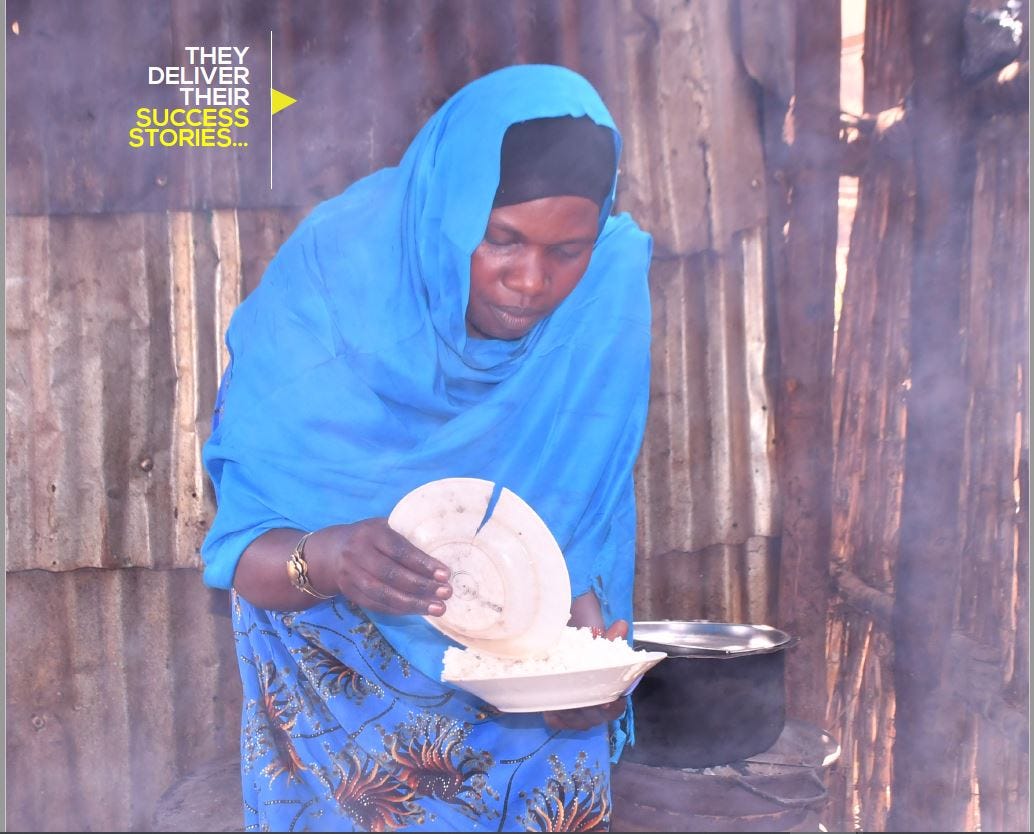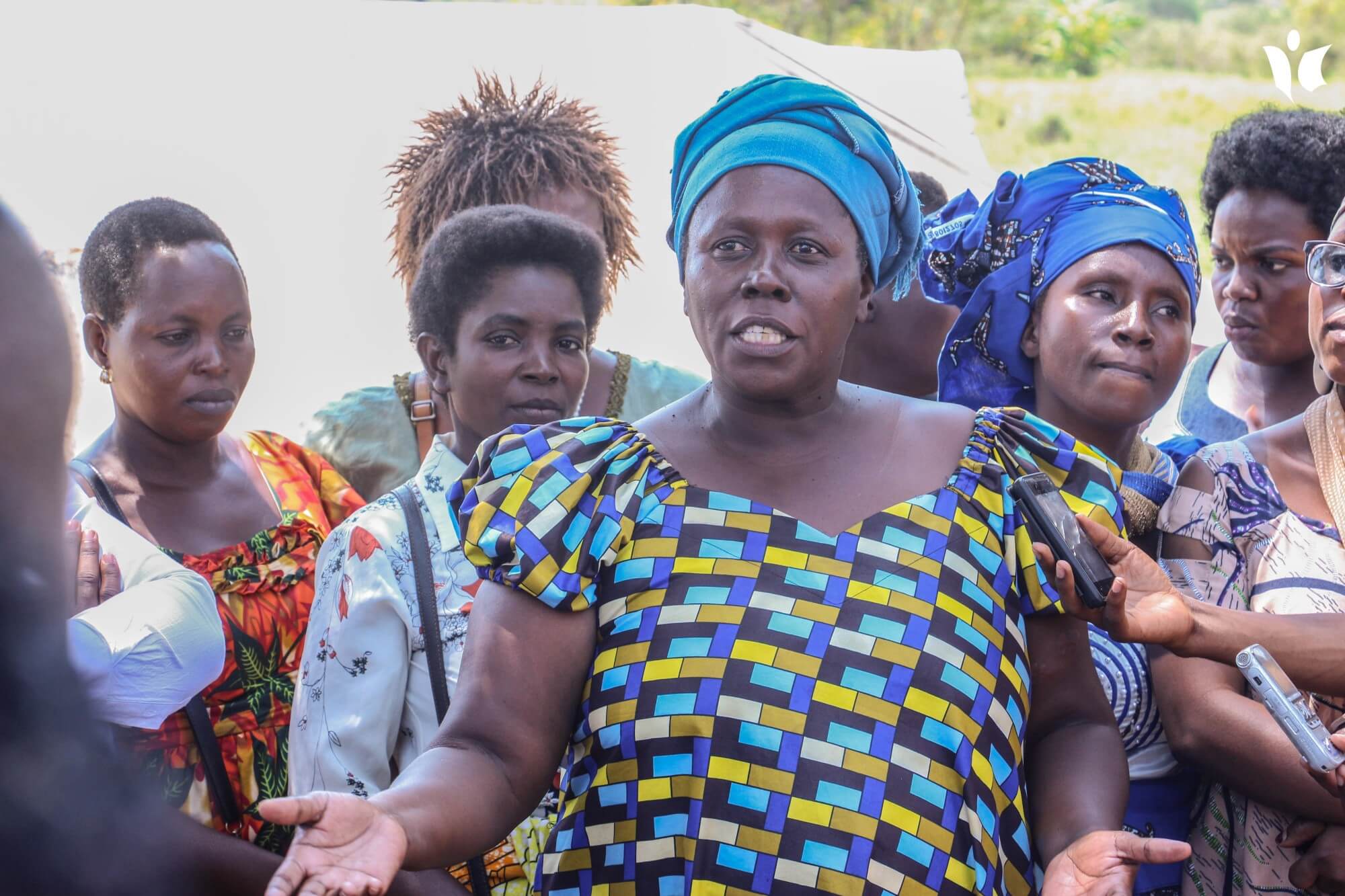The Editorial of Burundi’s Jimbere Magazine recently remarked that the TradeMark Africa (TMA) Women in Trade programme has, “Offered hundreds of Burundian women and girls the opportunity to learn and achieve their dreams. It has restored their pride in earning incomes, enabling them to become taxpayers and therefore contribute to the development of the country. Before the interventions, these women lived in fear of authorities and dreaded the day their businesses would be closed for non-compliance.”
TMA has supported Burundi women traders since 2012, and formally launched a Women in Trade project in 2017 with funding from Netherlands. This progamme continues to train women traders in basic business practices and regional trade laws, as well connecting them to new markets. One of the implementing partners is Association Des Femmes Entrepreneurs Du Burundi (AFAB), a local association that advocates for the interests of businesswomen in the country.
AFAB brings together various women-owned businesses and, “of the 400 men and women entrepreneurs targeted to benefit from training, 318 have been reached,” says Immaculalee Nsengiyumva, the AFAB Executive Secretary. AFAB’s success cuts across the country impacting the women cross border traders at Kobero-Kabanga border to those living further afield in Gasorwe.
 Zirfa Hamissi, business woman at the Kobero-Kabanga border
Zirfa Hamissi, business woman at the Kobero-Kabanga border
When AFAB started training women traders around Kobero-Kabanga border, the crossing point between Tanzania and Burundi, a vocal and sceptical Zirfa Hamissi was among its first beneficiaries. “I had a hard time believing in stories told by AFAB and other trainers. But AFAB came at a time when my business was unstable, and I was having a hard time, so I was ready to pursue a every available opportunity to find a lasting solution.”
Zirfa had traded at this border, operating a hotel and food business for nearly 10 years. She looks back at her experiences before AFAB. “When I started trading in 2012, I had a capital of only 300,000 BIF (US$157); and traded illegally mostly hiding from the revenue authority. Because of my limited knowledge on trade laws, I wrongly assumed that collaborating with customs would lead me to losses. Out of ignorance I viewed them suspiciously, and as a result made monumental losses. I was caught by the police or OBR agents several times and in many occasions, I had to close because my goods had been confiscated.” Yet, the determined businesswoman never gave up, even though she earned nothing from the business.
When AFAB set up shop in 2017 at Kobero, Zirfa immediately signed up, mostly responding to the hype and excitement the announcement caused while managing her expectations about the benefits of the training. Little by little, she discovered nuggets of knowledge and wisdom and ended up a better business manager who understood various regulations surrounding her business.
As a result, she re-structured her business model, consequently reducing the number of times she crossed the border into Tanzania to source for ingredients or sell her food. She realised her customers could now easily cross the border to her well-maintained restaurant and she could have the ingredients delivered. “AFAB molded me to be bold. I regularly pay taxes, and I am proud of it. My business is now stable, and on average I make 10.000BIF (US$5.2) of profit per day. I would never have imagined that one day, I will hold a NIF, a trade register and even pay taxes.” An NIF is a taxpayer identification number issued by the Burundi Revenue Authority to businesses and individuals. It protects the holder from tax penalties from the revenue authority.

Amida Uwingabiye, a dry foods supplier in Burundi
Amida Uwingabiye is a major dry foods supplier who sources her products from Tanzania and brings them to Burundi, selling them at Kobero and her native town of Gasorwe. She has her sights set on the East Africa region as her market. Amida provides insights into the lives of thousands of cross border traders who are yet to be reached by training programmes. She recalls that, in the early days of her business, getting her goods through the border involved pre-arranging customs clearance with friendly officers. “Sometimes, I would pay more than I earned. I remember one day, I imported goods worth US$700 and then ended up paying more than a million Burundian Francs. Obviously, my profits were diminished.”
After several such runs, Amida imagined there could be a better way to do business. In 2013, she looked for other women traders with whom to collaborate in order to harness their collective power. It is at this time that she heard of AFAB and she signed up immediately, marking the beginning of growth for her business.
Lessons in regulations on importation and exportation of goods, competition laws, identifying and making investments and savings shifted her focus. In one of the seminars, she identified the unstable foreign exchange market in Burundi as an opportunity to expand her business to include supply of food. “Thanks to this training, today, we are knowledgeable of basic business principles and can control all aspects of our business activities.” Like many other businesswomen in Burundi, Amida, has limited formal schooling and AFAB training filled in a critical knowledge gap.

Members of AFAB and officials from TradeMark Africa share a group photo after a training session
Amida dreams of doing business internationally, then reluctantly voices the challenge she will face. “What language shall I use, when that time comes?” She asks; and almost intuitively gives a solution, “TMA can consider training us in English and Kiswahili, which are the most commonly used languages in business transactions in Eastern Africa.”
For the last five years, TMA Burundi programme has worked predominantly with the private sector to support projects aimed at improving the capacity of businesses to trade.















